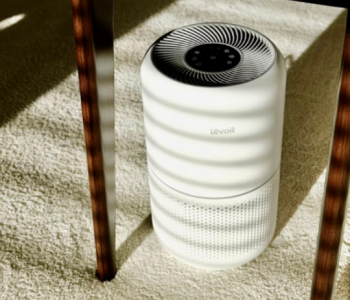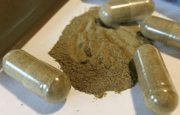Could your air filter help lower blood pressure? Study says yes
- Replies 0
Even when the sky looks clear, there are particles you can’t see—and they might be influencing your health more than you think.
Research continues to connect everyday urban exposure with long-term cardiovascular risk, often through sources that don’t make noise or leave a smell.
Now, a new study suggests there may be a surprisingly simple way to push back. And it doesn't involve medication, exercise, or diet changes—just a well-placed filter.
According to a peer-reviewed study published in the Journal of the American College of Cardiology, using an air purifier with a HEPA filter at home was linked to a noticeable drop in blood pressure.
Specifically, researchers found that just one month of consistent HEPA filter use resulted in a 2.8-point decrease in systolic blood pressure for people who started with slightly elevated readings.
That’s the top number in a blood pressure measurement, and medical professionals often point to it as the most telling predictor of cardiovascular problems. While the drop may sound modest, experts agree it’s meaningful at a population level.
Study author Doug Brugge, a professor at UConn Health, noted that exposure to ultrafine particles from vehicle emissions is a recognized risk factor for developing hypertension and heart disease.

Nearly one in four Americans live close enough to busy roads to be affected by this type of pollution, even if they don’t realize it. Since these particles are invisible and often odorless, most people remain unaware that they’re being exposed daily.
HEPA filters, which can remove a significant amount of airborne pollutants, offered a measurable benefit in just weeks.
The study enrolled 154 healthy volunteers who lived near high-traffic areas. Half were given two HEPA filters—one for their bedroom and one for their main living space—while the other half received sham filters that had no actual filtering function.
After a month, the groups were switched to ensure balance in results. Those with real HEPA filters saw a consistent drop in systolic pressure, while those with fake ones saw almost no change.
Also read: Pharmacists reveal: The vitamins and minerals you should never pair with your morning coffee
HEPA, or high-efficiency particulate air, filters are designed to capture microscopic airborne particles, including many that originate from roadways—like exhaust residue and brake dust.
Dr. Matthew Alexander, a cardiologist at Vanderbilt University Medical Center, reviewed the findings and called the effect “modest but clinically significant.”
Based on population-level data, he estimated this blood pressure reduction could translate to a 6% decrease in the risk of heart attack, stroke, or cardiovascular death. That’s a result many medications struggle to match without side effects.
Interestingly, the benefit was limited to individuals who began the trial with systolic blood pressure above 120 mm Hg. Those with already-normal blood pressure saw no meaningful change, indicating the filter's benefits are targeted rather than universal.
That distinction gives researchers a new path to explore: whether HEPA filtration could be a preventative tool for at-risk groups.
The portability and affordability of these units also make it a rare solution that doesn’t require a prescription or lifestyle overhaul.
The filters used in the study were not industrial-grade—they were commercially available models consumers can find in most big-box stores or online.
This accessibility was a key part of the study's appeal, says Brugge, as it means anyone with $100–$200 and a power outlet could try this approach at home.
Also read: Study finds these 6 foods may help reduce risk of multiple cancers
That simplicity is what makes this finding different from past air quality interventions, which often require public infrastructure or expensive HVAC upgrades. It’s a consumer solution to a public health problem.
Pollution expert Steven Chillrud, a research professor at Columbia University, says the findings should apply beyond just those who live near highways.
Air pollution comes from multiple sources, including local industry, wildfire smoke, and even neighboring households.
HEPA filters won’t solve the entire exposure issue, but they can reduce what you breathe indoors, where most people spend 90% of their time. Chillrud hopes the research pushes the public to take everyday air quality more seriously.
Read next: Three simple foods that support heart health—without breaking your grocery budget

If you’ve tried an air filter in your home, did you notice a difference in how you felt — or were the results harder to track? Whether you're already using one or considering a switch, let us know in the comments how indoor air quality has impacted your health. Would you invest in a HEPA filter after reading this? Your experience might help someone else make an informed decision.
Research continues to connect everyday urban exposure with long-term cardiovascular risk, often through sources that don’t make noise or leave a smell.
Now, a new study suggests there may be a surprisingly simple way to push back. And it doesn't involve medication, exercise, or diet changes—just a well-placed filter.
According to a peer-reviewed study published in the Journal of the American College of Cardiology, using an air purifier with a HEPA filter at home was linked to a noticeable drop in blood pressure.
Specifically, researchers found that just one month of consistent HEPA filter use resulted in a 2.8-point decrease in systolic blood pressure for people who started with slightly elevated readings.
That’s the top number in a blood pressure measurement, and medical professionals often point to it as the most telling predictor of cardiovascular problems. While the drop may sound modest, experts agree it’s meaningful at a population level.
Study author Doug Brugge, a professor at UConn Health, noted that exposure to ultrafine particles from vehicle emissions is a recognized risk factor for developing hypertension and heart disease.

New study finds certain air filters may help lower blood pressure. Image source: Fujiphilm / Unsplash
Nearly one in four Americans live close enough to busy roads to be affected by this type of pollution, even if they don’t realize it. Since these particles are invisible and often odorless, most people remain unaware that they’re being exposed daily.
HEPA filters, which can remove a significant amount of airborne pollutants, offered a measurable benefit in just weeks.
The study enrolled 154 healthy volunteers who lived near high-traffic areas. Half were given two HEPA filters—one for their bedroom and one for their main living space—while the other half received sham filters that had no actual filtering function.
After a month, the groups were switched to ensure balance in results. Those with real HEPA filters saw a consistent drop in systolic pressure, while those with fake ones saw almost no change.
Also read: Pharmacists reveal: The vitamins and minerals you should never pair with your morning coffee
HEPA, or high-efficiency particulate air, filters are designed to capture microscopic airborne particles, including many that originate from roadways—like exhaust residue and brake dust.
Dr. Matthew Alexander, a cardiologist at Vanderbilt University Medical Center, reviewed the findings and called the effect “modest but clinically significant.”
Based on population-level data, he estimated this blood pressure reduction could translate to a 6% decrease in the risk of heart attack, stroke, or cardiovascular death. That’s a result many medications struggle to match without side effects.
Interestingly, the benefit was limited to individuals who began the trial with systolic blood pressure above 120 mm Hg. Those with already-normal blood pressure saw no meaningful change, indicating the filter's benefits are targeted rather than universal.
That distinction gives researchers a new path to explore: whether HEPA filtration could be a preventative tool for at-risk groups.
The portability and affordability of these units also make it a rare solution that doesn’t require a prescription or lifestyle overhaul.
The filters used in the study were not industrial-grade—they were commercially available models consumers can find in most big-box stores or online.
This accessibility was a key part of the study's appeal, says Brugge, as it means anyone with $100–$200 and a power outlet could try this approach at home.
Also read: Study finds these 6 foods may help reduce risk of multiple cancers
That simplicity is what makes this finding different from past air quality interventions, which often require public infrastructure or expensive HVAC upgrades. It’s a consumer solution to a public health problem.
Pollution expert Steven Chillrud, a research professor at Columbia University, says the findings should apply beyond just those who live near highways.
Air pollution comes from multiple sources, including local industry, wildfire smoke, and even neighboring households.
HEPA filters won’t solve the entire exposure issue, but they can reduce what you breathe indoors, where most people spend 90% of their time. Chillrud hopes the research pushes the public to take everyday air quality more seriously.
Read next: Three simple foods that support heart health—without breaking your grocery budget
Key Takeaways
- The study cited was published in the Journal of the American College of Cardiology and involved 154 volunteers.
- Blood pressure readings were taken before and after exposure to either real or sham HEPA filters over one-month periods.
- Only individuals with elevated systolic pressure (above 120 mm Hg) showed improvements, according to lead author Doug Brugge of UConn Health.
- Commentary was also provided by Dr. Matthew Alexander of Vanderbilt University and Steven Chillrud of Columbia University, both unaffiliated with the original study.






